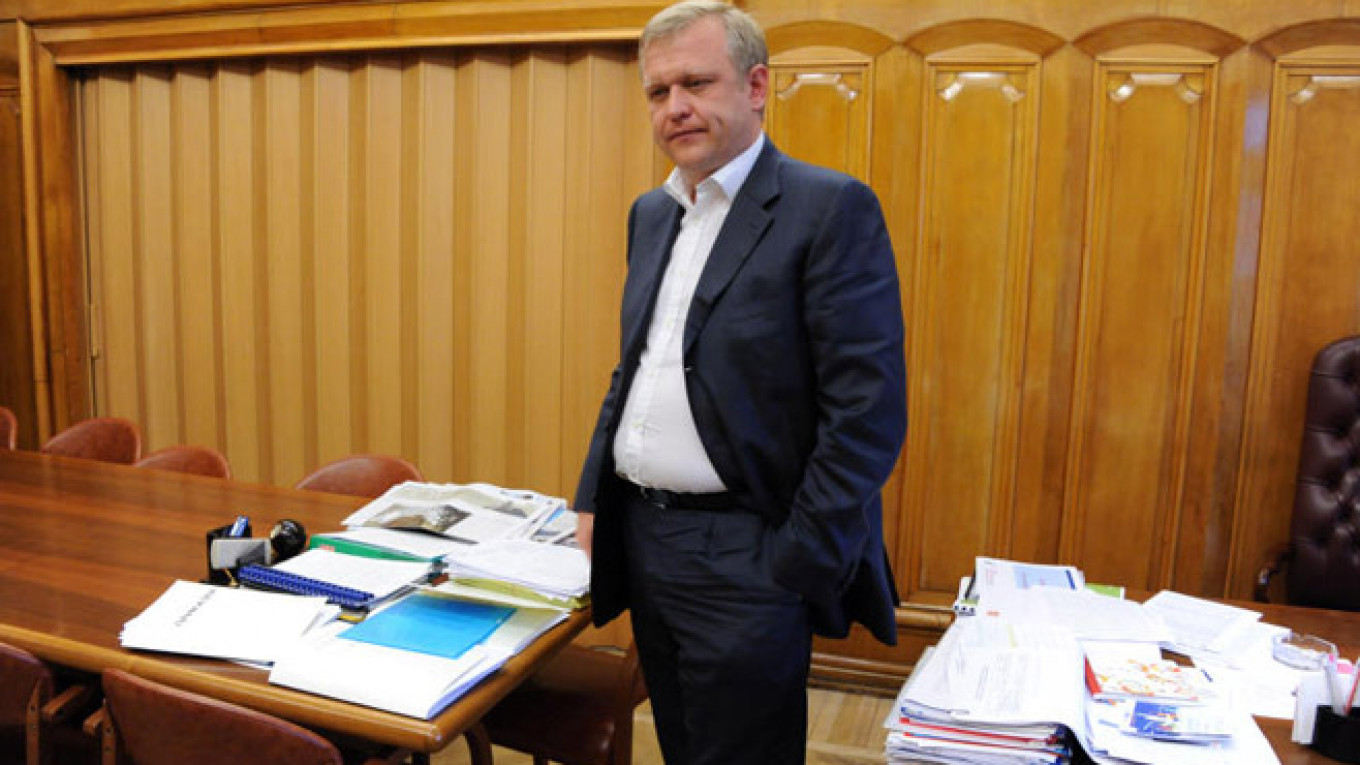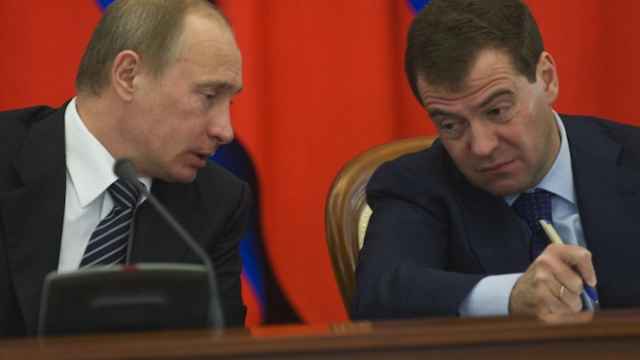Sergei Kapkov, Moscow's culture head who changed the face of the Russian capital during the past four years and was one of very few figures in the government supported by the country's urban liberal opposition, resigned from his post Tuesday.
Kapkov, 39, was often seen as an outsider in the Russian government, which has increasingly relied on traditionalist and conservative values in its image and policies in the past three years. With his Western-style innovations, he was often contrasted with Russia's outspoken Culture Minister Vladimir Medinsky, who has written a series of pro-Kremlin history books and condemned what he sees as "anti-Russian" movies.
While some were quick to link Kapkov's resignation with the stifling atmosphere of conservatism and saw it as inevitable, others speculated that he could be seeking to shift his efforts from modernizing Moscow's culture to modernizing its politics.
Kapkov, who has often dubbed the post he occupied as "Moscow's atmosphere minister," announced the decision on Facebook following several days of rumors that he was stepping down, saying that it had been his own choice to resign.
Moscow Mayor Sergei Sobyanin expressed his gratitude to Kapkov for his achievements during a City Hall meeting Tuesday, and said he would be replaced by Alexander Kibovsky, the former head of Moscow's Department of Cultural Heritage.
Kibovsky vowed to continue the course set by his predecessor.
"Kapkov and I have been colleagues for a long time. All the projects and initiatives that were launched during his tenure will be accepted, developed and continued," Moscow's new culture head told the Moskva news agency.
Kapkov said he would continue to develop Moscow's "culture and atmosphere," but said he has not yet received any job offers.
"I will continue working as Sergei Kapkov," he wrote on Facebook, referring to his name becoming a brand.
Kapkov Method
Kapkov is known for a number of signature projects that have changed the face of some of Moscow's main public spaces. These included the revamped Gorky Park, the swanky Gogol Center, and renovated theaters, libraries and pedestrian zones.
The Kapkov method was to swiftly apply the latest Western trends in urban planning, design and management to dilapidated post-Soviet institutions and wrap them in a chic European aesthetic.
Some pundits saw this simple yet popular increase in living standards — such as blanket Wi-Fi and the appearance of table tennis and free yoga in the city's parks — as a deliberate tactic to divert the attention of the generation of young, politically aware middle-class locals away from politics and rallies. Kapkov has repeatedly denied the accusation.
"I believe that my mission is to make it possible for more educated, professional, free, interesting and independent people to appear in Moscow," Kapkov told The Moscow Times in an extensive interview last October.
Read the full interview here: Q&A: Moscow's Hipster Culture Minister Defies Russia's Isolation
"We have to make a special effort so that life in Moscow is comfortable, safe and interesting. That is why our slogan is "Moscow: Live, Work, Create," he said at the time.
After the interview Kapkov confessed that his days as culture head were limited.
Ambition or Despair?
Despite the apparent success of his projects, Kapkov's potential resignation was regularly speculated about by the press.
According to socialite-turned-journalist Ksenia Sobchak, who was widely reported to be dating Kapkov in 2010, there were two main reasons for Tuesday's decision.
"Sergei Alexandrovich is an ambitious man who wanted to become deputy mayor, which was the first reason for his resignation. The second reason was that the budget for culture was cut and he realized that there would be no money to implement the projects that were interesting for him, such as Gorky Park," Sobchak told the Afisha-Gorod website, which covers Moscow's urban life.
The budget of Moscow's culture department was 50.9 billion rubles ($812 million) in 2015. In 2014 it was 52.6 billion, but given the ruble's recent dramatic devaluation, the difference in dollar terms is far greater.
Sobchak also said that many of the projects launched by Kapkov would now continue to develop without their patron being at the helm of Moscow's culture.
Since the launch of Kapkov's various projects, some of the methods have been copied for other spaces, such as the Soviet-era VDNKh exhibition center that last year got a major Gorky Park-style "hipster facelift."
The New Man
The new culture head, Kibovsky, is a historian and has extensive experience in the preservation of cultural monuments both at a city and federal level.
While his appointment as the main preservationist of Moscow's architectural heritage in 2011 raised hopes that the era of large-scale demolition of historic buildings in the city center had come to an end, at least 60 have been destroyed since then, according to Arkhnadzor, Moscow's leading preservation movement.
Theater and museum directors questioned by Interfax news agency on Tuesday were overall positive about Kibovsky's appointment.
Contact the author at [email protected]
A Message from The Moscow Times:
Dear readers,
We are facing unprecedented challenges. Russia's Prosecutor General's Office has designated The Moscow Times as an "undesirable" organization, criminalizing our work and putting our staff at risk of prosecution. This follows our earlier unjust labeling as a "foreign agent."
These actions are direct attempts to silence independent journalism in Russia. The authorities claim our work "discredits the decisions of the Russian leadership." We see things differently: we strive to provide accurate, unbiased reporting on Russia.
We, the journalists of The Moscow Times, refuse to be silenced. But to continue our work, we need your help.
Your support, no matter how small, makes a world of difference. If you can, please support us monthly starting from just $2. It's quick to set up, and every contribution makes a significant impact.
By supporting The Moscow Times, you're defending open, independent journalism in the face of repression. Thank you for standing with us.
Remind me later.






